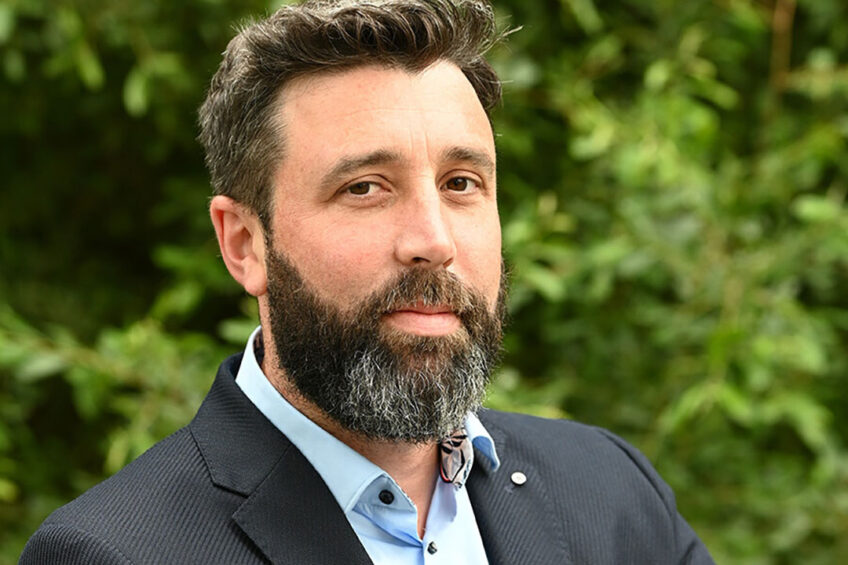Michel Marcon (IFIP): ‘A solid focus on pig R&D in France’

The French Pork and Pig Institute (IFIP) has been at the heart of much pig and pork related research in France. The institute’s current investments aim to address the rising concerns and expectations of increasingly critical consumers, explains Michel Marcon, director of R&D at IFIP.
For the first time 55 years, the French Swine Research Days (JRP) took the attending scientific crowd to a different place then the country’s capital Paris. On January 31 and February 1, 2023, the country’s swine scientists gathered at the Atlantic coast in Saint-Malo, Brittany. As always, among the most prominent speakers and research updates were those of the French Pork & Pig Institute (IFIP).
Could you share some key figures for research at IFIP?
“Research and development are at the heart of IFIP’s activities, which devotes 100% of its budget to that. This is approximately € 10 million per year. IFIP employs around 90 people. About 65% of those are engineers, mainly based at the Rheu office in Brittany.
“IFIP can operate thanks to the French Ministry of Agriculture’s funding from the national agricultural and rural development programme. We also get funding from the Inaporc interprofessional organisation and from public-private research partnerships.
“IFIP is an agro-industrial and an agricultural technical centre. The institute’s engineers and technicians work on 9 themes: animal feed, animal welfare, health, economy, building/equipment, environment, genetics, food safety, meat/charcuterie.”
How can IFIP do its experiments?
“The Romillé experimental station near Rennes has been a real incubator of innovations and solutions for the pig sector. The renovation of the station stems from 2020, after more than 20 years of operation. It was guided by 4 objectives.
“The first objective is doing experiments. A new building enriches the station with new equipment and increases its statistical power. It is equipped with centralised ventilation and an air scrubber. Air from the post-weaning section passes through a heat exchanger in order to heat incoming air entering the attic. A V-shaped scraper was installed under a fattening room while another identical room has a gravity evacuation of effluent.
Apart from the housing, we test new ways of working and produce new references
“The second objective relates to health. The biosecurity of the experimental unit receives special attention. The site is open to visitors following adequate biosecurity regulations. At the entrance of the livestock buildings, a room with 10 showers and a fumigation facility serves to disinfect equipment entering the site.
“The third objective deals with welfare issues. Maternity units have been restructured into 6.5 m2 “freedom” boxes. Apart from the housing, we test new ways of working and produce new references. Each pen is equipped with a scale cage, a piglet nest and an on-demand feed device.
“Last but not least, the fourth objective deals with economics and sustainability. The building of a new post-weaning and fattening unit with 896 places (320 post-weaning and 576 fattening) improves the profitability of the experimental unit.
“Apart from the Romillé station, IFIP also has 2 laboratories in Maisons-Alfort: a test and technological measurement laboratory, and a microbiology laboratory. The concentration of these 2 laboratories on the Romillé site in the summer of 2023 requires an investment of around € 2 million, It means and a doubling of the current surfaces to reach 800 m².
“This has 2 advantages: it strengthens the image of IFIP as an institute at the service of a sector, and it ensures continuity to the final product for important themes such as welfare or the environment. It also results in synergy from the grouping in the same place of teams and research partners.”
Animal welfare has been a strong research theme and even more since the end of castration in 2022
What are currently IFIP’s major research themes?
“After having been a major line of research, nutrition has gradually become a tool to address topical themes such as the environment, biodiversity, climate change or the protein autonomy of farms. Animal welfare has been a strong research theme and even more since the end of castration in 2022.
“In addition, over the past four to five years, we have seen an increase in research guided by consumer expectations, particularly for buildings, with strong societal demand for buildings that are more open and equipped with outdoor exercise areas. The environment remains a strong current theme, with research aimed at limiting greenhouse gas emissions and the creation in the first half of 2023 of a certified tool (a “low carbon” label) allowing farmers to quantify the emissions of their installations.
“Finally, we have also done significant work on biosecurity, with a substantial parallel drop in the use of antibiotics in livestock farming.”
What are IFIP’s links with other European institutes or research centres?
“In France first of all, we are in permanent contact with the French National Research Institute for Agriculture, Food and the Environment (INRAE), the Chambers of Agriculture of Brittany and the Pays de la Loire. We work together within the GIE Tech Porc. We carry out our trials in consultation with those of the experimental stations of Crécom (Côte d’Armor department) and Trinottières (Maine-et-Loire department).
“Apart from our participation in several European research projects (Feed-a-Gene, HealthyLivestock, Roadmap, Geronimo, Pathway, etc.), we have regular exchanges with research centres in other countries such as IRTA in Spain (on the subjects of meat processing) or ILVO in Belgium (on the standardisation of breeding data). I should also mention regular relations with universities in the Netherlands (e.g. Wageningen UR) or Germany.
“We also have annual meetings with the Québec Pork Research Center (CDPQ) on various subjects (environment, industry economics, export/import, food, etc.).”







